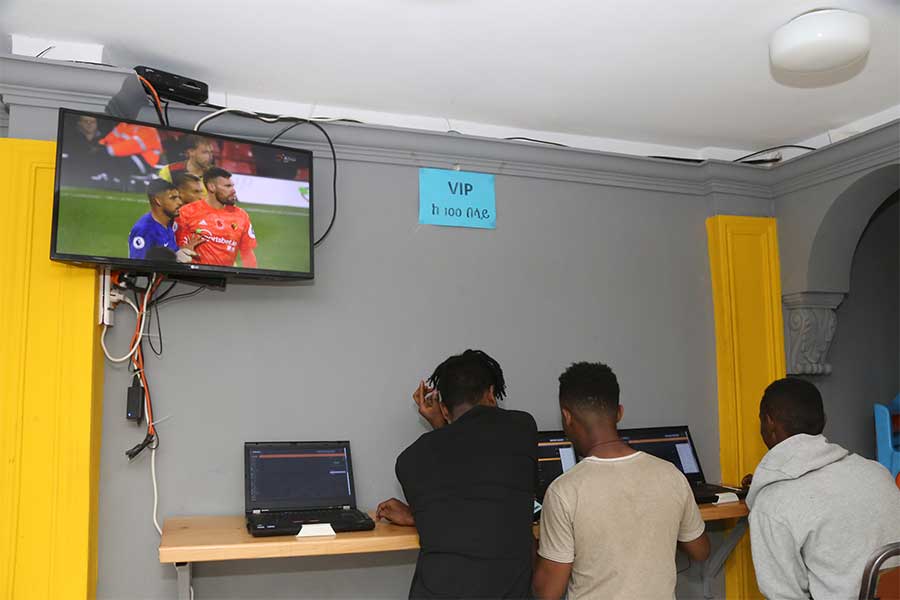While rich markets promise healthy revenues, smaller markets have their own appeal. Less competition means there’s plenty of room for new operators to get their foot in the door. With only a handful of domestic operators, Ethiopia is still a wide-open field.
Emerging markets in Latin America and Africa have been one of the biggest stories in iGaming in the past few years. Growing economies and a wave of liberal regulation are creating opportunities for established brands looking to expand as well as new entrepreneurs looking for the right market.
When it comes to Africa, most eyes slide over Ethiopia on their way to countries like Kenya, Nigeria, and South Africa. Kenya and Nigeria have, in some ways, modeled what the Ethiopian market could become in a few years. Both have larger economies (and in Nigeria’s case, a much larger population) but there’s a similar love of sports and betting.
Challenges but Potential: igaming in Ethiopia
Success is possible for online casinos in Ethiopia, but the road to get there is very bumpy. Despite being one of the world’s poorest countries, Ethiopia’s economy has grown by an average of 10% over the last 15 years, and overall poverty levels have been decreasing, however, it still lags behind other African nations that have taken their place on the international iGaming stage. Ethiopia’s GDP per capita ($936 in 2020) is half that of neighboring Kenya, but with a population of over 115 million, there are over twice as many Ethiopians to potentially place a few bets.
Sportsbook operators facing the Ethiopian market would have to count on players betting far less than the average in other regions, though maybe with a higher frequency. This falls in line with the main betting habits that operators can expect from players in this part of the world; a high volume of low-value bets. In Kenya, for example, players wager much less than in European markets but do so a few times a week or even several times a day.
Internet penetration also presents a challenge. Only an estimated 25% of the population is connected to the internet, and less than 40 individuals per 100 have mobile cellular subscriptions. This puts a limit on the number of possible players, though this should be viewed in the context of the country’s sizable population; 25% of 115+ million is still a significant audience.
Recent liberalization in the payments sector is creating more room for decentralized payment options, a positive development in a country where only an estimated 38% of adults 25 and over have an account with a financial institution or a mobile-money service provider.
Gambling Regulations in Ethiopia
Basically, Ethiopia is a classic gray market for online gambling. While land-based casinos and sportsbooks are legal, online gambling in Ethiopia is still in the gray-market stage of its development.
The National Lottery Association is responsible for setting regulations and issuing licenses. Reportedly, there is only one licensed casino, in Addis Ababa, that slot or roulette lovers can go to. That leaves the door open for online casino operators, either domestic or offshore; most potential Ethiopian players simply don’t have many options.
The only lottery is a state monopoly. However, as with casino betting, players aren’t prevented from playing lotteries run by offshore companies.
Ethiopian bettors
The balance between online sports betting and online casino gaming tilts decidedly in the former’s favor.
Sports bettors — an estimated 60% of the country’s gambling audience — usually log on to local online sportsbooks or online branches of land-based bookmakers. Casino players, without any domestic options, frequent offshore platforms, often looking for a Curaçao license to verify the brand can be trusted.
A gambling license from Curaçao will let your casino cooperate with financial institutions and leading software developers, as well as give it legitimacy in the eyes of the players.
It’s even possible that Ethiopian bettors prefer the Curaçao license to that of the country’s official regulator. While the charges were eventually dropped, several members of the National Lottery Association were accused of corruption in 2015.
As yet, there are only a handful of domestic operators. Some of the most popular local sportsbooks are Harifsport, Hulusport, Axumbet, Bestbet, and Gihon Betting.
Ethiopian punters primarily bet on football, but tennis, basketball, and (surprisingly) ice hockey can all be found on Ethiopian sportsbooks. Cricket, boxing, and MMA are also popular. European leagues like the Champions League, the Premier League, and Bundesliga all have their odds displayed on the front page of Ethiopian betting sites, and scrolling further down will yield even more worldwide options.
As always, localization is key. Most betting sites will be available in the local language, Amharic, as well as in English. Some sites offer other languages, such as Turkish or Portuguese, as well.
As mentioned above, operators would have to adjust their business model and expectations to players’ average income. With a GDP per capita of just over $900, Ethiopians simply don’t have much disposable income, and as such, the average bet will inevitably be lower.

